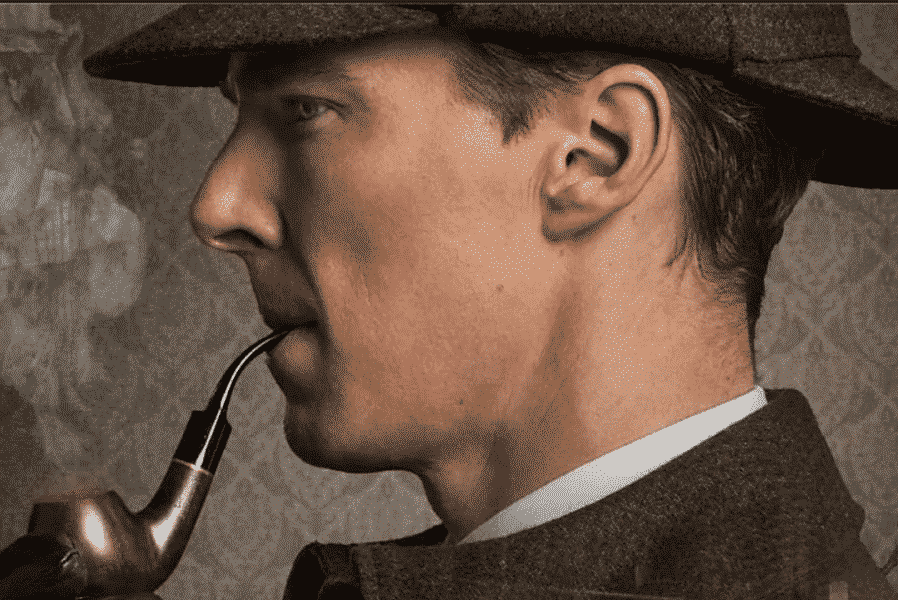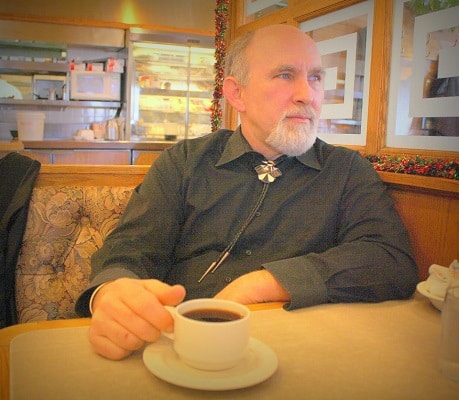Dec. 17, 2020

Feature
Hard-boiled, Half-baked and Harvard-educated
Readers don’t always know the full scope of the PI genre. Because of its expansive reach, some readers find themselves immersed in a particular subgenre of their liking without realizing what else they might be reading, while others are not certain what distinctions exist. For the sake of this article, I am going to draw attention to three of the primary subgenres: Hard-boiled, Half-baked (also called soft-boiled/cozy) and Harvard educated.
A Brief History of The Private Detective
Samuel Dashiell Hammett, knew that the real world of private investigations was not nearly exciting enough to capture the attention of most readers. A Pinkerton’s man for 12 years, Hammett recognized that hours of surveillance for ten minutes of “action” (which could be anything from seeing the subject of your investigation mow the lawn to visually verifying your subject does in fact live outside the city limits of the city that employs them with a residency requirement) didn’t make for breath-taking, page-turning suspense or mystery. Hammett, along with Raymond Chandler, was one of the best-known writers of the hard-boiled private detective. In the fiction, there are other types of gumshoes.
Before we embark on an explanation of the fictional private detective, it is probably best to have a brief history of the non-fiction world. Allen J. Pinkerton was, among other things, the founder of the first Private Detective Agency in the United States, the North-Western Police Agency. Pinkerton had served President Lincoln, providing counter intelligence on Confederate troop movements and other Confederate information. He is largely credited with starting what is now known as the Secret Service. He was the first detective for the city of Chicago. Pinkerton and his wife lived in Dundee, Illinois, and their home, which can still be seen today, was a stop for the Underground Railroad. It was said Pinkerton and his wife not only provided food, clothing and shelter for run-away slaves, but also job-training. After Pinkerton’s death, his agency and private detectives in general, fell into ill-repute for being involved in questionable actions when suppressing the labor movement at the turn of the century.
Currently, most states do not allow private detectives to use the words police, sheriff, law enforcement or government in their agency names. And, although the license in most states does provide exemptions from certain restrictions, private detectives are not sworn, do not possess arrest authority – they are private citizens with a professional license. Their work consists of assignments ranging from serving court documents to infidelity and workers compensation fraud surveillance to criminal defense investigations and executive protection. States individually dictate the regulations which define the scope and limitations of their activities.
Edgar Allen Poe is credited with writing the first detective fiction, most notably in that category, The Murders in the Rue Morgue. The growth of the genre from this point was large, wide and varied, although the majority of the literature can be said to fall into one of three categories (please note, hard-boiled is the only searchable category, the names of the other categories were created by this writer for the sake of expediency). There are a few conventions which can be found across the categories: red herrings, false alibis and dramatic conclusions are among the essential elements. Often the private detective will have a “friend in the police department” or other government agency who can provide them otherwise inaccessible information, and an association with a “street source” – someone who is a criminal or associates with criminals and can provide access or information.
Hard-boiled
Common elements of the hard-boiled private detective: tough (through military, prior law enforcement, school of hard knocks, short stint in for a crime, of course, they didn’t commit, etc), wise-cracking, persistent, with an understanding of the underpinnings of human behavior, and, of course, more capable (or at least more effective) than most local law enforcement detectives. The hard-boiled private detective is most often thought of as belonging in or to noire fiction, but it is not necessarily exclusive to that. Samuel Dashiell Hammet is considered by many to be the father of the hard-boiled private detective. His most critically acclaimed novel was Red Harvest, but he is more widely known for the characters of Sam Spade (The Maltese Falcon) and Nick and Nora Charles (The Thin Man series). These characters were made famous by radio and then movies. Hammett insisted on writing the screenplay adaptations. Raymond Chandler, whose character Philip Marlowe also gained popularity in movies portrayed first by Humphrey Bogart then James Garner, in more than one interview stated he admired and attempted to replicate elements of Hammett’s work. Stephen J. Cannell attributed the success of the Rockford Files to his own admiration for the works of Chandler.
Half-baked
Half-baked is actually a much larger category, as by this phrase I am referring to those private detectives who have as an aspect of their personality or within their stories cooking some shape or form, those who are, for lack of a better word, quirky, and the category of cozies. Cozies are crime fiction in which sex and violence are downplayed or treated humorously, and the crime and detection take place in a small, socially intimate community which is much an element of the story as anything else. Agatha Christie is perhaps the most well-known author of these types of detective fiction, and the diversity of authors and sub-genres would require quite an in-depth exploration.
Harvard-educated
Perhaps the most well-known of what I refer to as Harvard-educated private detectives is Sir Arthur Conan Doyle’s Sherlock Holmes. In the Conan Doyle stories, Holmes sometimes used morphine or cocaine (both legal in England at that time) because his racing intellect was bored if not on an investigation or researching an obscure fact. Robert B. Parker’s Spenser was an educated private detective who sometimes quoted from religious or classic literary text. Although Jessica Fletcher of the television series fits into this category, this was a case where the books were actually a biproduct of the television series.
The authors and private detectives mentioned in this article are referenced primarily as they are amongst the easiest to search. The diversity of private detectives, from The No. 1 Ladie’s Detective Agency to V.I. Warshawski, is expansive and growing. The variety of other subgenres continues to grow as well. Determining the type of Private Detective fiction that might best keep your interest might seem difficult. Hopefully this overview and small sampling leaves you better informed to find the type, or particular detective, that keeps you turning pages.
About the Author
Edward J. Herdrich was a licensed Private Detective for over 20 years, specializing in criminal defense, fraud, and locate investigations ranging from adoption searches to witness locates. He is an Honorably Discharged member of the United States Army Military Police Corps, and a member of Veterans for Peace. He graduated from the University of Illinois at Chicago with a double major in English (Creative Writing emphasis) and Criminal Justice. He is the author of a non-fiction book for entry-level investigators which is used by three local community colleges in their private investigation courses, as well as the author of several interviews, essays and articles published in PI Magazine.

More Detective Features
Priest Detectives
These holy detectives are not content with the mysteries of faith
The Characteristics of Hercule Poirot
Peculiar habits and unmatched deductive abilities
Detective Novels
The pinnacle of sleuthing
